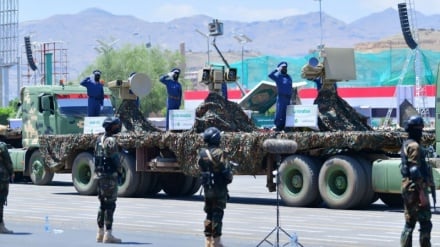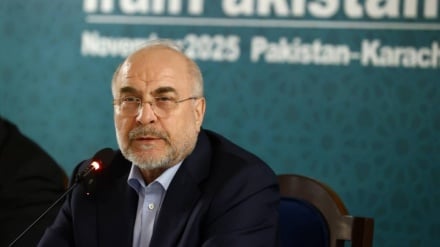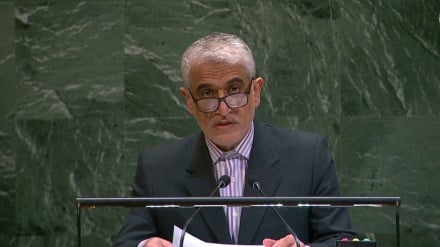Saudi Arabia’s Heinous crime against humanity in Yemen
The state terrorism unleashed on Yemen by Saudi Arabia has killed over 11,000 men, women, and children over the past year-and-a-half, and the fatality toll is increasing by the day as aircraft supplied by the US continue to rain down deadly bombs on unsuspecting civilians, like the bombardment of the funeral ceremony of an official’s father in Sana’a that left over two hundred martyred, and more than six hundred injured.
This article presents glimpses of Saudi crimes in Yemen that have destroyed the infrastructure of the Arab World’s poorest country, leaving hospitals, schools, power generation plants, waterworks, mosques, marketplaces, and all other public utility buildings.
At 25, Sadeq Abdullah Saleh al-Quraizea was close to finishing his education and looking forward to the future. In August, just three months before the end of his master’s degree in IT at Limkokwing University in Malaysia, the English-speaking Yemeni had returned home to the country’s capital, Sana’a, to marry. The wedding 10 days later coincided with the resumption of airstrikes by Saudi Arabia, which led to the closure of the airport, forcing him to stay longer than expected. Last week, still in Sana’a, he accompanied his 56-year-old father, Abdullah, a security officer, to the city’s as-Sala al-Kubra community hall for the funeral ceremony of a well-known sheikh, the father of the Ansarullah-led government’s interior minister, Jalal ar-Rawishan. It was to become the site of one of the single most devastating attacks in a conflict that has turned from a civil war to a regional conflagration that threatens to become another Syria. Diplomatic neglect as well as US and UK arms sales have emboldened Saudi Arabia to continue the brutal war that could blow up in west’s face. According to Abdullah al-Quraizea, the father of Sadeq: “We went there to offer condolences. I sat in the right side of the hall and my son was approximately 5 metres in front of me. Among the crowd were senior military officials, but also hundreds of civilians. At about 3.30am, the first Saudi strike hit. The roof fell and I got injured. I jumped out of a window to get out, thinking that my son had gone out before me. Then I went to look for my son inside; it was impossible to see amid the devastation and fire, it was then that the second missile landed.”
The two munitions dropped by a Saudi warplane, which Human Rights Watch identified as US-manufactured 227kg laser-guided bombs, killed 140 people, among them the newly-wed Yemeni and several children. More than 500 people were also injured in what Human Rights Watch (HRW) labelled this week “an apparent war crime” by the Saudi-led coalition, which is backed by the US and the UK.
One in three Saudi air raids on Yemen have hit civilian sites. Abdullah al-Quraizea said: “My son was scheduled to go back to Malaysia a week after his marriage. Like many other students he had nothing to do with this unjust war. He wanted to return to Malaysia in order to complete his study, and continue a PhD - to achieve his dreams. It’s catastrophic and bitter. It is a heinous crime against humanity, and the oddest thing is that this crime was committed by an Islamic country, the so-called Kingdom of Saudi Arabia.”
Sarah Leah Whitson from HRW said: “After unlawfully attacking schools, markets, hospitals, weddings, and homes over the last 19 months, the Saudi-led coalition has now added a funeral to its ever-increasing list of abuses.”
HRW said the Saudi-led coalition with the direct help of the US and assistance from the UK has conducted at least “58 unlawful airstrikes causing civilian loss of life and property”.
Yemeni analyst Farea al-Muslimi said that the funeral attack has had a significant effect domestically and is likely to push the conflict further from prospects of peace. He said the conflict risked making Yemen another Syria or Libya. This week, the US for the first time targeted Ansarullah-held territories in retaliation for the alleged missile attacks on its warship off the coast of Yemen, although the Ansarullah have refuted the accusation, and pointed out that it could be a ploy by the Saudi Arabia and its agents to drag the US into the war in Yemen.
Al-Muslimi said: “In 2011, Yemen was already facing a humanitarian crisis; in 2014 half of the population were in need of humanitarian aid and now it’s 81%. It is tragedy after tragedy after tragedy. People have lost jobs, people have lost everything – there’s no market except war. If you want to fight, you’ll find the job, if you want to find anything else it’s impossible.”
Ahmad al-Qohbary, a university student from Dhamar city in south-western Yemen, said he had lost six of his closest friends since the conflict began last year. He said: “People in my city are so broke, there has been no salary for more than two months. Some people have been evicted from their apartments because they don’t have any money to pay rent. Poor people are everywhere.”
Abdullah Saleh holds the US and the UK as much as Saudi Arabia responsible for the death of his son and the carnage in Yemen. He said: “I wonder about the international silence about these crimes against innocent people. Why the international community doesn’t do anything? Aren’t we human beings? Saudi Arabia doesn’t distinguish between civic and military targets, and it doesn’t differentiate between child or woman or older man. Saudi Arabia is targeting our country because we don’t have money to buy the international silence.”
According to conscientious American journalist Ray Offenheiser the US Support for the war in Yemen is indefensible and that deference to Saudi Arabia has cost America its moral footing. He regretted that not even funerals are sacred in a time of war. Referring to last week’s bombardment of a gathering of Yemeni mourners by Saudi warplanes that killed over 200 people and injure over 600 others, he said: This is not an isolated incident but rather the latest tragedy in Saudi Arabia’s military intervention—facilitated by US intelligence sharing and aerial refueling. He added: These are your tax dollars at work.
According to Ray Offenheiser, the humanitarian impact of the bombing campaign is staggering—no civilian is left unaffected. Yemen, the poorest country in the Middle East before the start of this conflict, is now on the brink of starvation. The numbers do not sufficiently represent the desperation that this conflict has wrought, but they’re a start. More than 19 million people do not have access to clean water, 14 million people are suffering from hunger and malnutrition, and more than 3 million Yemenis have been driven from their homes. In the more than 3,000 strikes since the conflict began, civilian sites are routinely in the line of fire. Hospitals, schools, factories, homes, markets—there is no safe space in Yemen today. And with Saudi Arabia’s purchase of more than $115 billion in US-manufactured military equipment approved since the war in Yemen began—including air-to-ground munitions as well as tanks—the jeopardy civilians are facing is marked with a deep American imprint.
Newly disclosed government documents reveal that State Department lawyers warned that the U.S. could be implicated in war crimes for supporting a Saudi-led air campaign in Yemen.
Ray Offenheiser said the lack of transparency from the get-go is an insult to the families of the massacred, who are still burying their dead, and for the families of those wounded in the attack desperately trying to seek assistance for their loved ones. He called on the US to suspend its support for the Saudi military campaign, saying: In the end, one has to wonder how this will ultimately reflect on President Barak Obama’s legacy. He and his foreign policy leadership will surely look back upon the decisions they’ve made about Yemen with regret in light of the carnage and the daily assault on human dignity.
Each day the US supports this war, with every air strike that hits a civilian site, every civilian killed, maimed or going hungry; with every US weapon used in Yemen and every warplane refueled that kills or wounds civilians, the US tarnishes its reputation in the world. Some things should still be sacred.
AS/MG


